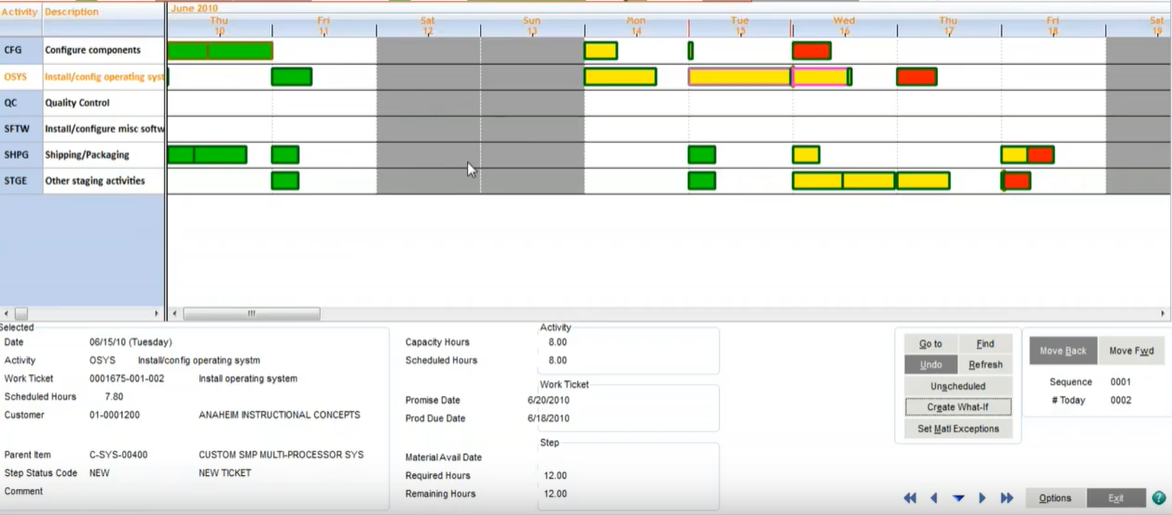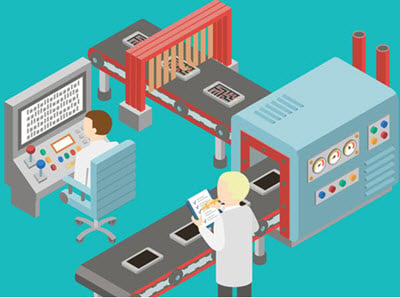4 Ways to Transform Sage 100cloud Discrete Manufacturing Management
Get the 4 transformation tips to modernize your Sage 100 manufacturing processes and systems for an ever-changing economy. Many manufacturers are...

You have decided to switch your discrete manufacturing ERP systems, but to what? You’ve probably been using an on-premises solution, and "the Cloud” is everywhere but you should also consider a hybrid discrete manufacturing ERP solution during your evaluation.
When you hear the term “hybrid,” typically you think of how cars save energy or boost acceleration by utilizing both combustion and battery power together. In the case of discrete manufacturing ERP software, it refers to the combination of both cloud-based functionalities combined with on-premises asset storage. This approach allows you to benefit from the innovations the cloud offers while maintaining the security and confidence you get from having control of your data.
Many industries hopped on the cloud bandwagon right away. For instance, software companies who were very accustomed to the Cloud started running most or all business applications over the internet. On the other hand, manufacturers and distributors were later adopters of cloud applications.
However, many were wary of how their data would be safeguarded in the Cloud or worried about how they would access it during an internet disruption. Increasingly, companies are feeling more intrepid after seeing long-term benefits such as scalable storage, the ability to shift to working from home without business disruption, and flexible subscription pricing. That’s what makes a hybrid approach ideal because it can be the best of both worlds.
For users of Sage 100cloud, the hybrid model delivers its core functions and data on premises. And they get cloud-based access to specialty functions and collaboration features with bi-directional communication between the environments.
Also, companies are adopting more add-on applications from cloud-based providers. A hybrid ERP model enables you to connect your preferred web-based applications to your ERP, such as payroll or online billing. This saves you time and reduces costly errors because you avoid the manual import or actual duplicate data entry of your payroll or billing data that’s already in the cloud.
“The software doesn't do that” is a complaint we continue to hear. One of the unexpected benefits of an ERP migration is the opportunity to automate and streamline processes beyond what’s possible today with your legacy software. It can provide a fresh start with your record keeping. Just like packing up when you move to a new home, you tend to be more organized putting things away in your new house.
You can streamline the data collection and eliminate duplicate data entry that’s commonly in legacy software. Take a giant leap forward without the analysis paralysis by utilizing Sage 100cloud software, which is specifically designed for manufacturing businesses. Read our eBook to see some examples of KPIs companies like yours use, enabled by Sage 100cloud manufacturing software.
If you’d like to see how a hybrid ERP approach might be just the right fit for your manufacturing business, we can help. We have experts that know Sage 100cloud and the manufacturing industry. Contact Vrakas/Blum today!

Get the 4 transformation tips to modernize your Sage 100 manufacturing processes and systems for an ever-changing economy. Many manufacturers are...

If you're like most manufacturers that offer options, you have thousands of items and bills of materials in your Sage 100cloud system. How many of...

Reduce Anxiety With A Sage 100Cloud Manufacturing Expert If you're considering a migration to Sage 100cloud manufacturing software, it's important to...